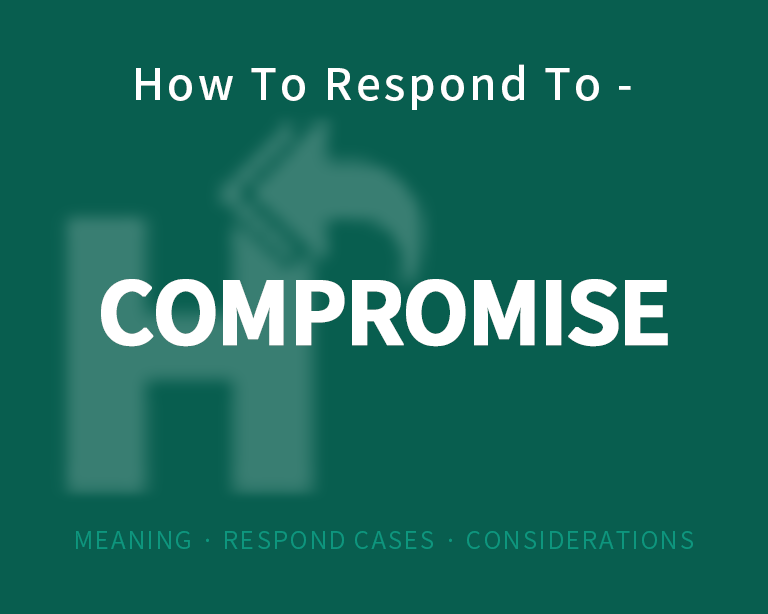The Best Way to Respond to Compromise?

Compromise is an important skill in communication, especially when working with others who have different perspectives or needs. It can be difficult to respond to compromise because it requires a willingness to give up some of your own goals or priorities. In this article, we will discuss how to respond to compromise in a conversation.
What is Compromise in a Conversation
Compromise is the process of finding a solution that satisfies both parties, even if it means giving up some of your own goals or priorities. In a conversation, compromise can be identified by the exchange of offers and counteroffers, as well as a willingness to find a solution that meets both parties' needs.
3 Specific Cases of Compromise
Case 1: Project Timeline
Background: You are working on a project with a tight deadline. The other party suggests extending the deadline, but you are concerned about meeting the original deadline.
Suitable reply sentence: ""I understand that an extension may be necessary, but I am concerned about meeting the original deadline. Is there a way we can adjust the project scope or delegate tasks to ensure that we meet the deadline?""
Case 2: Budget Allocation
Background: You are working with a team to allocate a budget for a project. The other party suggests allocating more funds to one area, but you believe that the funds should be distributed more evenly.
Suitable reply sentence: ""I appreciate your suggestion, but I believe that it is important to distribute the funds evenly across all areas of the project. Can we discuss ways to make adjustments to the project plan to meet our goals while staying within budget?""
Case 3: Team Collaboration
Background: You are working with a team on a project, and there are disagreements about how to approach certain tasks.
Suitable reply sentence: ""I understand that we have different perspectives, but I believe that we can find a solution that meets everyone's needs. Can we discuss each team member's priorities and come up with a plan that accommodates everyone's needs?""
How to Think About Responding to Compromise
When responding to compromise, it is important to consider the other party's needs and priorities, as well as your own. Think about what you are willing to give up and what your non-negotiables are. It is also helpful to approach the situation with an open mind and a willingness to find a solution that benefits both parties.
Considerations When Responding to Compromise
When responding to compromise, it is important to communicate clearly and actively listen to the other party's perspective. Be willing to make concessions and find creative solutions that meet both parties' needs. Remember to remain calm and composed, and avoid reacting emotionally.
Conclusion
In conclusion, compromise is an important skill in communication, especially when working with others who have different perspectives or needs. By approaching situations with an open mind, being willing to make concessions, and communicating clearly, you can respond effectively to compromise. Remember that compromise is a process, and it takes practice to become skilled. Keep practicing and developing your skills, and you will become a master at responding to compromise.